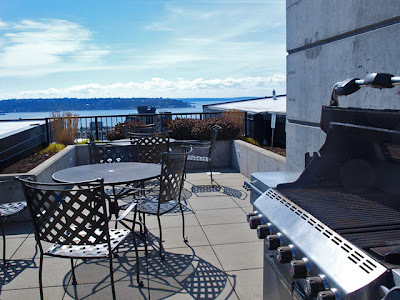Eight-alarm Fire Sweeps Through South Boston Building on Summer Street

Earlier this morning there was an Eight-Alarm fire that ran through a South Boston commercial building undergoing renovation, just next door to Premier Property Solution's offices on Summer Street. According to Boston.com, "The fire caused an estimated $2 million in damage, and more than 150 firefighters battled the blaze."
Important Fire Safety Information for Boston Residents
To help prevent future disasters like this, Premier Property Solutions wants to use this opportunity to remind everyone of some important fire safety tips.- For properties who allow Christmas trees/wreaths/etc., always keep them hydrated and away from heating elements. Use timers or manual switches to turn off decorative lighting when you are not at home.
- Keep hallways, stairwells and common areas clear of debris. This includes doormats in hallways and potted plants on fire escapes as they are a tripping hazard in the event of evacuation.
- If they are allowed in your property, take extra care with cigarettes, candles, space heaters, heated blankets, traveling appliances (hot plates, etc.). Limit your use of power strips and surge protectors.
- Smoking is prohibited in elevators, common areas, and on roofs. Roof membranes are particularly flammable.
- Fire places, chimneys and flues must be inspected and swept prior to use. Contact your Property Manager to ensure the fireplace is in safe working condition.
- Fire Escape and Fire Balcony certification is required every 5 years by a MA Registered Profession Engineer.
The State and City of Boston's Fire Code:
- Prohibits the use of charcoal grills on or within a building.
- Prohibits the use or storage of liquefied petroleum gas containers used for barbecue cooking inside or on balconies above the first floor of any building or structure used for habitation.
- Cooking and grilling are prohibited on the roof, fire escapes, alleys, and common areas.
Final Recommendations for Fire Alarms & Evacuation Procedures
FIRE ALARMS- Learn where fire alarm stations and pull boxes are located.
- Should you detect a fire, sound the building's fire alarm, evacuate the building, and then call 911 from a phone at another location.
- Whenever a fire alarm sounds, evacuate the building immediately using the nearest available exit.
- Learn your two nearest exits including fire escapes.
- When an alarm sounds, dress quickly (for the weather).
- Before opening your room door, feel it for warmth. If it is hot to the touch do not open it. If not, open the door very slowly.
- When you leave your room, CLOSE THE DOOR BEHIND YOU.
- If smoke is present, crawl out low to the floor.
- Without hindering your own evacuation and on your way out of the building, warn as many of your fellow residents as possible by knocking on doors and shouting.
- Once outside, stand clear of the building well away from all entrances.
- Do not reenter the building until specifically instructed to do so by a Fire Department official.
- If conditions prevent you from leaving your room:
- Find the nearest fire escape and see if that route is accessible.
- If not, prevent fumes and smoke from entering your room by blocking all openings (with wet towels, if possible).
- Call 911 and alert telephone operator of your location.
- If smoke is in your room, stay close to the window holding a towel (wet, if possible) to your face.
- Do not break or open windows unless necessary - this source of oxygen may fuel a fire or create a draft that will allow more smoke or fumes to enter your room.
- To alert rescue personnel hang a white towel or other brightly- colored cloth out of your window.
Read this blog for more fire safety tips and don't forget to subscribe, follow us on Twitter @MAcondoMGMT and “like” us on our Facebook page Facebook.com/MAcondoMGMT for more information about property management & maintenance in Massachusetts.











